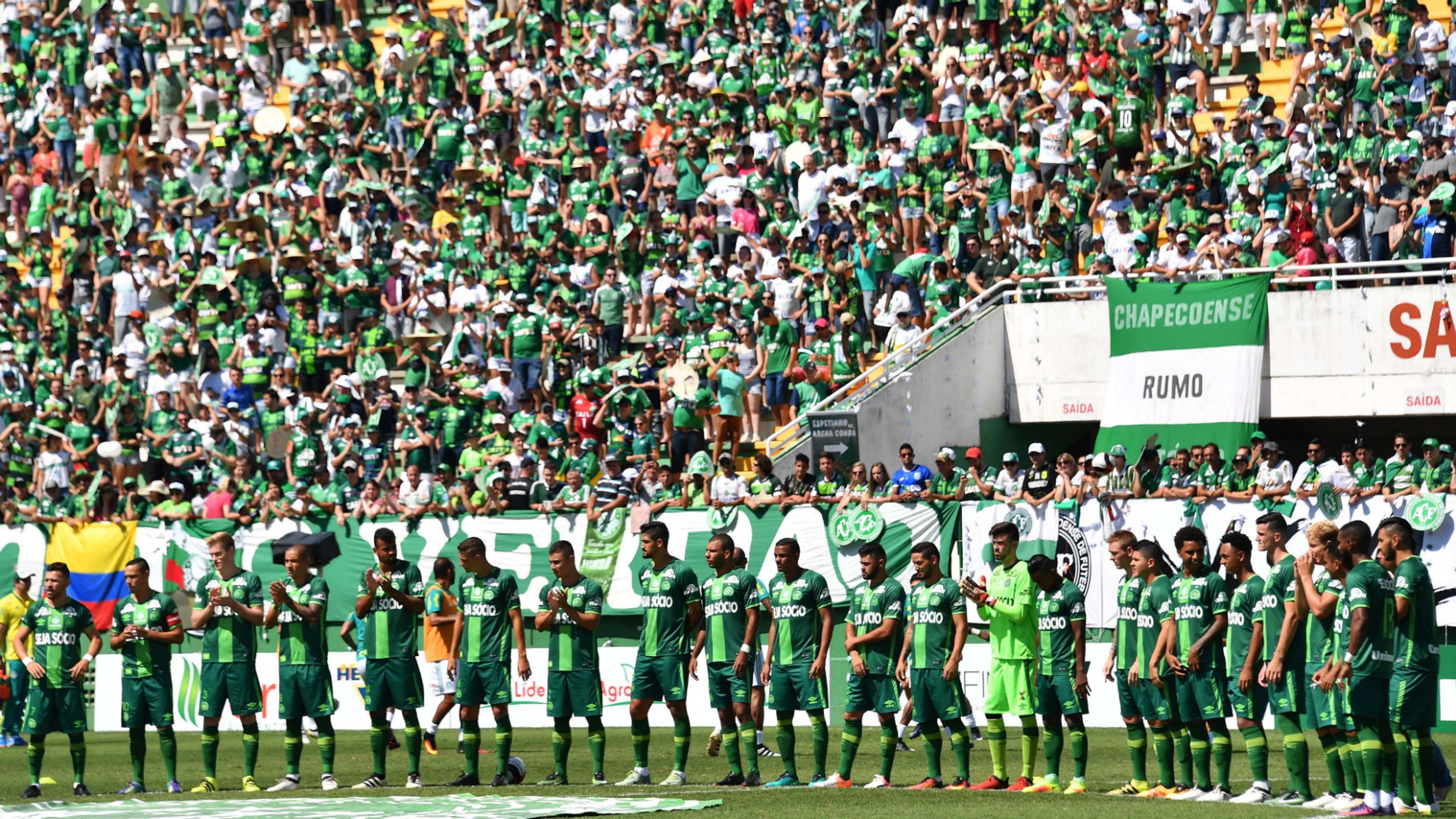A survivor of the 2016 Chapecoense air disaster has died of a heart attack.
Rafael Henzel was a journalist on board the plane that crashed near Medellin, Colombia whilst carrying the Chapecoense team to a Copa Sudamericana match.
He was one of six survivors of the accident that claimed the lives of 71 passengers, many of them members of the Chapecoense team.
The plane carrying Chapecoense was flying from Santa Cruz de la Sierra, in Bolivia, where the team had spent a brief stopover.
The 45-year-old collapsed whilst playing football with friends on Tuesday in his native Brazil, and died in hospital shortly after.
Next Match
"Throughout his brilliant career, Rafael told the story of Chapecoense," the Chapecó club said in a tribute on its website.
"The green and white pages of this institution will always remember his example of overcoming [adversity] and everything he did."
Speaking to the BBC in the weeks after the crash, he said: "When we were 10-15 minutes away from landing, the engines went off because the plane had ran out of fuel... I put my seat belt on and I thought that the engines would go back in a few minutes. But that didn't happen."
Henzel had been set to cover the match between Chapecoense and Criciúma in the Copa do Brasil on Wednesday, but the club has asked Brazil's football association to postpone the game out of respect for the journalist.
"My dream was to come back to my city, feel the ground under my feet. And this finally happened. It was a very special moment," said the journalist, who published a book about the crash in 2017.
The other survivors are footballers Alan Ruschel, Helio Zemper Neto and Jakson Follmann, and crew members Ximena Suarez and Erwin Tumiri.
The team lost the majority of its playing staff in the 2016 crash and were only able to continue competing after a host of clubs in Brazil made contracted players temporarily available to their rivals.
The club had risen from being outside of Brazil’s four national divisions to the top flight in under a decade before the air accident brought a halt to their remarkable story.






-min.png?auto=webp&format=pjpg&width=640&quality=60)